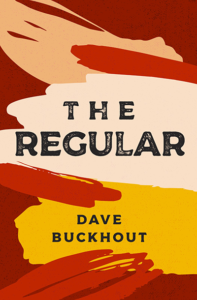Soul Survivor
A Short Story
They fell one-by-one, at first: the whirring dirge of saws, the crack-crack-bonebreak-cracking of trunk, the heart-skip of the jarring thud — thud — thud. . . . They fell one-by-one-by-one, at first. But then industrial efficiency was thrown at “the problem,” and they began to fall in bunches, tossed atop the indiscriminate broken piles of sweetgum, poplar and pine, the white, red and water oak—the pin and post. The flowering trees and the fruit trees: dogwood, cherry, pear, apple and mulberry, efficiently ripped out and stacked up into grotesque piles—windrows cut down as by scythe. . . . It started with them falling one-by-one, as the individuals they once were. But then the heartless bastards brought in bigger machines and the damned claw-faced cranes, just following orders as they ripped us out wholesale. That sinew-tearing song; the muddy pits strewn of pulped tendon, ligament, epidermis. The holly and willows, the maples and magnolias planted or seeded by-chance long ago, ripped out to make way for things not interested in what was, but only in what will be—which will be without the trees. The sight of their root balls dangling from the heartless claw, red dirt dripping from roots in clotted chunks; crackling tendon and ligament torn fiber-by-fiber. And the pulverizing thuds: one-by-one-by-one. The elms and beech, the pignut hickory: rippled clean out as if an invasive weed, as if they had never been there—as if they had never been, at all.
And so it went. And yet, I stood. Falling all around me by the grove: bulldozed, ripped from the Earth with calculated soldier-like efficiency; their root balls tossed atop a lifeless mass of shredded, broken shards contorted in that moment when the death blow was delivered. Those piles: a lifeless mass of what had once been the heart—the soul—of life. . . . And it’s not like we didn’t have our differences. I hated. I blocked the sun from my rivals. I often hated and hogged sunray and aquifer — stole it all for me, alone. And those of my own ilk? We had our spats too. But that all washed out as part-and-parcel. Fratricidal, but also, somehow, harmonious: the order of things. Fair. In my most selfish, even as I wished death on my rivals — well — nothing like such unimaginable slaughter, nothing of the holocaust that I have witnessed here. Thirty acres on the outer ring of the town’s centre, what was once a neighborhood with prim homes on lots with woods — mowed down. The murder endemic to developing a future full of condos, apartments, a street-level shopping complex; the murder of a few thousand trees but a line-item on a list of tasks. . . . One-by-one-by-one, until they just started bulldozing us by the grove.
It began during the leafless moons. By the time of pollination, they were all gone; all but me: the sole survivor, for some reason spared. I once threw shade on a modest single-level home. It is now gone and I stand over a killing field. I live, as if spared only to grieve; for it is all I do, all I can do. Untouched, while they “processed” all the rest. The murder, the twisted death-howl of falling trunks ripped to bloody shreds. Their screams still ring in my ears. My soul. I watched them all die. Why do I live? Surviving mass murder, to be the one; the only tree left standing in what is now a construction site. . . . It is some kind of cruel joke. They parked a trailer beneath me: coming-and-going with their rolled-up papers, chattering relentlessly, those damned hard-hats. They left me to witness genocide, left me to understand that life or death is by their whim. Tall Oaks, what they plan to call this place—the sadist bastards. I wish for death. I want to buckle and fall and be twisted and broken and feel the pain that all the others felt, my root ball ripped out and thrown atop a lifeless pile—root-and-branch. . . .
I watched them die by the thousands; yet, the bastards let me live. They may kill me yet. But I will leaf out and I will live while alive. I will do this because I must ~
